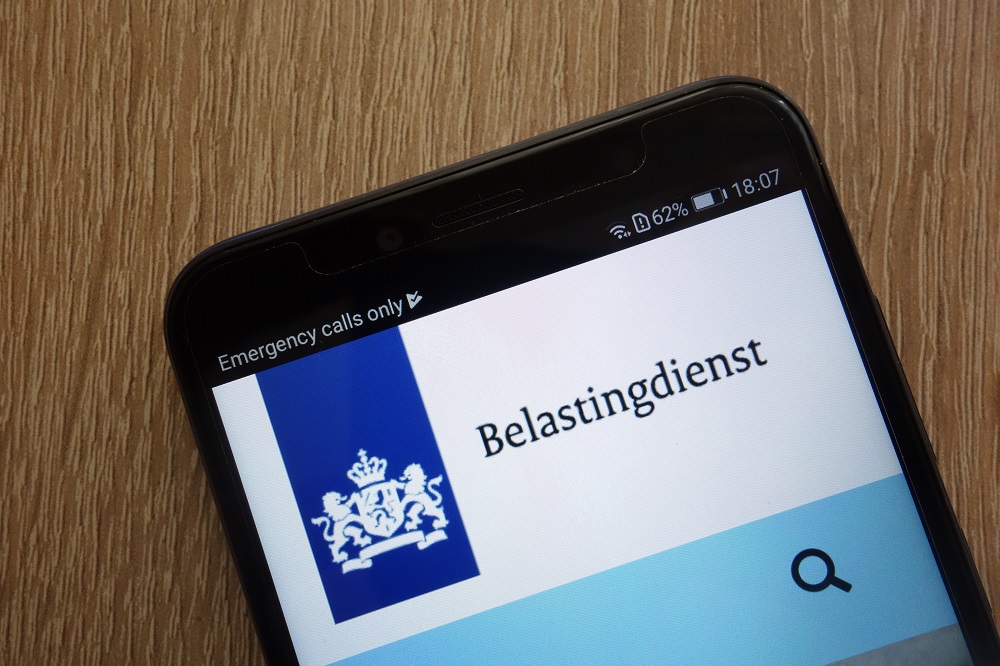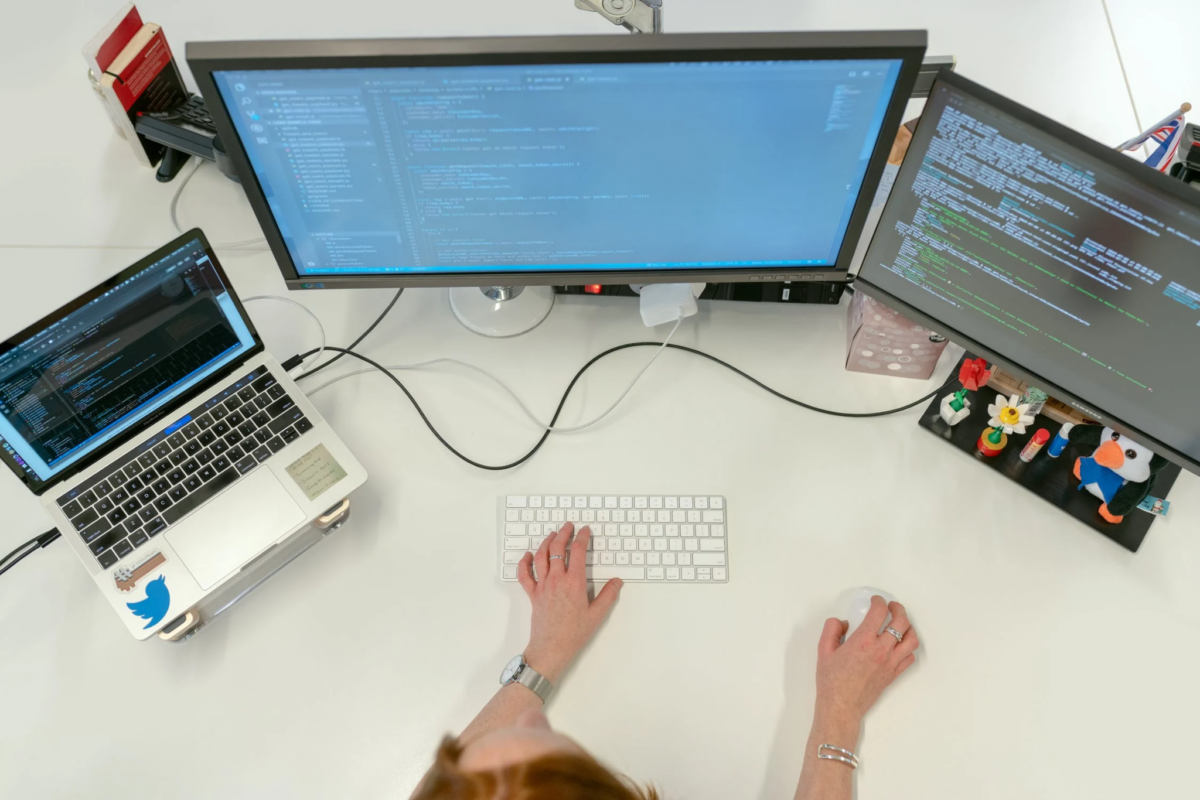For those seeking an English-language study program, the Netherlands is one of the most accessible countries to explore, for a variety of reasons.
For starters, over 2,100 courses are on offer here in English, constituting 23% of the bachelor’s degrees on offer here and 74% of the master’s degrees.
Tuition
Another reason why studying here is so attractive is because the level of education is high, with some faculties ranking higher than world-famous universities across the world, while tuition is relatively low. Students from EEA (European Economic Area) countries, Switzerland and Surinam pay a tuition fee of €2,143 (academic year 2020-2021), while students from other countries pay between €6,000 and €15,000 for a bachelor’s degree, and between €8,000 and €20,000 for a master’s degree. Compare that to, for instance, $26,000 – $36,000 per year in the US (for non-state residents) and $10,230 for state residents.
International Students
There are almost 86,000 non-Dutch nationals in the Dutch universities, from 170 countries, 27% of which are outside Europe. When it comes to bachelor’s degrees, 53% of the international students go to a research university and 47% to a university of applied sciences. While the percentage of international students is 11.5 of all students in the Netherlands, they constitute 23.6% of all students obtaining a research university master’s degree.
You’ll notice just how international the Dutch universities are when you visit their so-called open days, where you can follow short classes, meet current students and obtain information about the courses. The pamphlets are available in English, many of the introductory classes are given in English and, among the current students grabbing a bite to eat in the cafeteria, English appears to be the main language – if only because in every group there’s at least one student who doesn’t speak Dutch.
Two Types of University
The higher education system in the Netherlands is based on a three-cycle degree system, consisting of a bachelor’s, master’s and – if you want – Ph.D. degree. It is offered at two types of institutions: research universities (WO / universiteit) and universities of applied sciences (HBO / hogeschool).
Research Universities
Academic education (universiteit) is offered to students with an IB-Diploma or the Dutch VWO – or their equivalent – by universities in Maastricht, Eindhoven, Tilburg, Nijmegen, Wageningen, Enschede, Groningen, Utrecht, Amsterdam, Leiden, Delft, and Rotterdam. Some of these universities also have faculties / departments in other cities.
The university degree programs are organized around a bachelor’s or undergraduate phase that lasts three years and a master’s or graduate phase that lasts one to three years. These universities offer research-oriented programs (Wetenschappelijk Onderwijs, WO) and the possibility to conduct research in a wide range of disciplines: language and culture, behavior and society, economics, law, medical and health sciences, natural sciences, mathematics, engineering, and agriculture.
As many Dutch universities have partner institutions in other countries, students can follow part of their degree program course abroad. Your university can tell you with which universities it has an exchange agreement.
Hogescholen or ‘Universities of Applied Sciences’
Universities of applied sciences offer higher professional education (Hoger beroepsonderwijs, HBO), which focuses on applied arts and sciences in one of the seven HBO sectors: agriculture, engineering and technology, economics and business administration, health care, fine and performing arts, education / teacher training, and social welfare.
The universities of applied sciences offer four-year bachelor’s degree programs as well as master’s programs lasting one to two years. All degree programs focus on preparing students for particular professions. They tend to be more practically-oriented than programs offered by research universities. In addition to lectures, seminars, projects and independent study, students are often required to complete an internship or work placement (stage) which normally takes up part of the third year of study, as well as a final project or a major paper in the fourth year.
International Education
Next to the research universities and universities of applied sciences, Holland has a third and smaller branch of higher education, officially known as ‘International Education’ (IE). International education offers advanced training courses, taught in English, originally designed for people from developing countries whose jobs require highly-specialized knowledge. Most of the IE institutions are part of a research university and focus on courses relevant to developing countries.
 There are almost 86,000 non-Dutch nationals in the Dutch universities, from 170 countries
There are almost 86,000 non-Dutch nationals in the Dutch universities, from 170 countries
Finding a Study Program Here and Abroad
The site www.studyfinder.nl offers international students an independent and reliable overview of international study programs offered by the Dutch higher education institutions, ranging from short training seminars to full-fledged bachelor’s and master’s degree programs. On www.scholarshipportal.com you will find an overview of the financial support available from many different sources for those who want to study in Europe.
Requirements for Admission to Higher Education
For access to WO bachelor’s programs, students are required to have an IB diploma, a VWO diploma or – in some cases – to have completed the first year (60 ECTS, see further on) of an HBO program. The minimum access requirement for HBO is an IB-diploma (and, in some cases, the IGCSE-diploma with two additional subjects at GCE-level), the Dutch HAVO / VWO diploma or a level-4 MBO-diploma. Students with four GCSEs with marks ranging from A*-C, plus two GCEs at A/S level are also eligible for admission. Potential students older than 21 years of age who do not possess one of the qualifications mentioned above can qualify for access to higher education on the basis of an entrance examination and assessment.
To determine whether your diploma qualifies, if you have a non-Dutch secondary school diploma or an IB diploma, you must have your diploma evaluated by your prospective educational institution.
Institutions may have additional admission requirements. You first need to find a study program and then check its particular admission requirements, and if there are any additional ones. To follow an English-language course, you must speak, read and write English well, and you will be required to show that you have passed an English language test. IELTS and TOEFL are commonly accepted, but institutions may accept other tests as well, such as Cambridge English.
Deadlines and DigiD
If you want to study in the Netherlands, keep an eye out for the application deadlines. In some cases, for instance numerus fixus study programs, this is January 15. For most other study programs, it is May 1. With some universities, you need to apply via the Studielink website – so be sure to check with your prospective study program whether this is the case for you. In order to register via Studielink, you will need a DigiD – this is a digital identity used to arrange certain things online, such as taxes, healthcare, insurance, etc. You request a DigiD online – for which you will need another of those Dutch acronyms; a BSN (burgerservicenummer, or citizen service number), as well as a mobile phone number and an email address. After about five days, you will receive a letter by mail with an activation code – so be sure to take this into account when preparing to register!
Associate’s Degree
The associate’s degree (it goes by the same name in Dutch) program is a two-year ‘short cycle’ degree program offered by universities of applied sciences. It enables students to obtain a professional qualification in a shorter period of time and can help them learn the skills and competencies needed to improve their chances on the job market. Access requirements to an associate’s degree program are the same as for an HBO bachelor’s program (they don’t accept all MBO diplomas, however). Once they have obtained an associate’s degree, graduates can seek employment or continue in the last two years of an HBO-program, to obtain a bachelor’s degree.
International Secondary Vocational Education
There is a network of bilingual MBO schools in the Netherlands, currently consisting of 40 schools. At a bilingual MBO school, 50% of the curriculum is taught in English. Students who graduate from a bilingual MBO school are obligated to obtain an internationally-acknowledged diploma or certificate such as BTEC, BULATS, Cambridge or Anglia. Another important part of bilingual education is the focus on international awareness in the curriculum, for instance through international internships or projects. At the moment, there are several MBO schools that offer full degrees in English, like ROC Mondriaan and the Summa College. Other schools in the Netherlands are extending their curricula with international courses, like ROC Amsterdam, where students can follow an intensive one-year international course in denim development.
European Business Baccalaureate Diploma
Recently, a new program has been developed: the European Business Baccalaureate Diploma (EBBD), which is recognized all across Europe. The program focuses on business competence and soft skills in an international environment, for professions in the area of business administration. In the Netherlands, the Summa College in Eindhoven, Koning Willem I College in Den Bosch and ROC Midden Nederland in Utrecht offer this program. For more information check www.eurobacdiploma.eu.
Choosing a University
The Dutch system of quality control guarantees that the education offered at all the institutions meets the same high standards. When Dutch students choose where they want to study, they are not thinking of which research university or university of applied sciences is best, but instead are looking at which specializations are offered and which emphasis or academic tradition is featured. On www.studyfinder.nl you can search and compare English-language study programs based on the criteria that matter to you.
How do you know for sure that your course or program is of the right quality? Find out whether it has been accredited by the Accreditation Organization of the Netherlands and Flanders (Nederlands Vlaamse Accreditatie Organisatie, www.nvao.com), which has been appointed by the Dutch and Flemish government for the purpose of monitoring the quality of the higher education courses and programs on offer. All Dutch higher institutions that you will find on www.studyfinder.nl have signed the Code of Conduct. Find out more which institutions have signed the Code of Conduct on www.internationalstudy.nl.
Making the Transition
In principle, if you want to come to the Netherlands as a student, you can only come here to follow a particular course (or full study program) and you must meet all requirements. There are, however, three exceptions to this. The first is: if you meet all requirements for studying in the Netherlands, you are allowed to come here for a year first to study Dutch. The second is: if you do not meet all requirements, you can come here for a year to follow a preparatory program for the particular study of your choice. The third option is the so-called foundation year (schakeljaar); a transitional year that has been created for specifically for non-European, non-Western students to help them prepare for their studies here.
Studiefinanciering
Based on studiefinanciering rules, students starting in September 2020 can take out a maximum loan of € 1,076 (including a tuition fee loan). If you have a right to the studiefinanciering-loan, you also have a right to the Studenten OV-chipkaart, with which you can travel by public transportation for free either during the weekend or on weekdays (your choice) and at reduced rates during the other days. This public transportation pass is subject to the condition that you complete your studies within ten years.
If you are a non-Dutch national, legally residing in the Netherlands, you can apply for the studiefinanciering-loan if:
· you are enrolled in a recognized, full-time or dual course of at least one year
· you are an EU/EEA/Swiss national and lived in the Netherlands for five consecutive years with a maximum interruption of six months, or if you (or your non-Dutch parent or partner) did
· you have a type I, II, III or IV or V residence permit.
DUO strongly advises foreign EU-students (if you have not been living in the Netherlands for five consecutive years or more) to contact one of their support offices. They can provide you with further information. EU/EEA/Swiss nationals who do not qualify for the studiefinanciering-loan, can apply for a tuition fee loan, to be repaid upon completing their studies, for more information, visit www.duo.nl.
 Useful links
Useful links
www.studyinholland.nl – for information on requirements, tuition fees, scholarships, etc.
www.nuffic.nl – for information on the education system, diplomas, etc.
www.duo.nl – for information on the student grant
www.uaf – for refugees looking to study in the Netherlands

The Holland Handbook 2024
It is that time of year again; the new and annually-updated version of The ...

Dutch Taxes
Taxes are always complicated. If you have moved to the Netherlands from another country they ...

The UnDutchables 9.0
Following the legendary previous eight editions of The UnDutchables, the 9th edition of this all ...

Making the most of your Dutch home
Whether you are renting, staying in a long-term AirBNB or have just bought a ...

Gift giving in the Netherlands-all ...
If you feel like skipping your birthday, you may be in for a challenge when ...

10 things you will find in every Du ...
The Dutch are very fond of houseplants, the more the merrier! You will find the ...

Obtaining a Mortgage as an Expat in ...
Obtaining a mortgage as an expat in the Netherlands can be a complex process, as ...

Help me move to the Netherlands!
Obviously, the decision to move to the Netherlands is not one to be taken lightly ...

The Impact of Technology on Educati ...
Education is unending and pivotal in society. Technology is one of the most dynamic entities ...

Five Renovation Tips to Increase yo ...
Learn how much home renovations cost – and which repairs increase the home value, and which ...